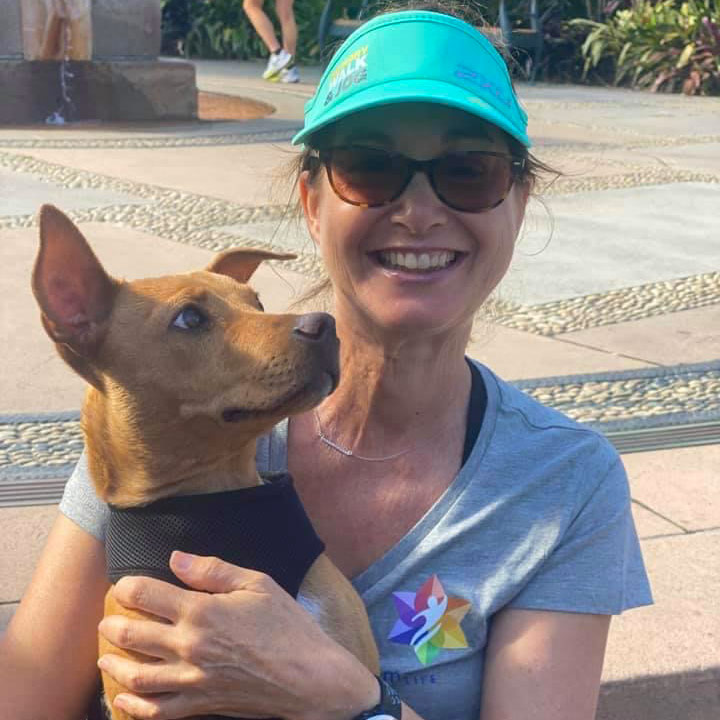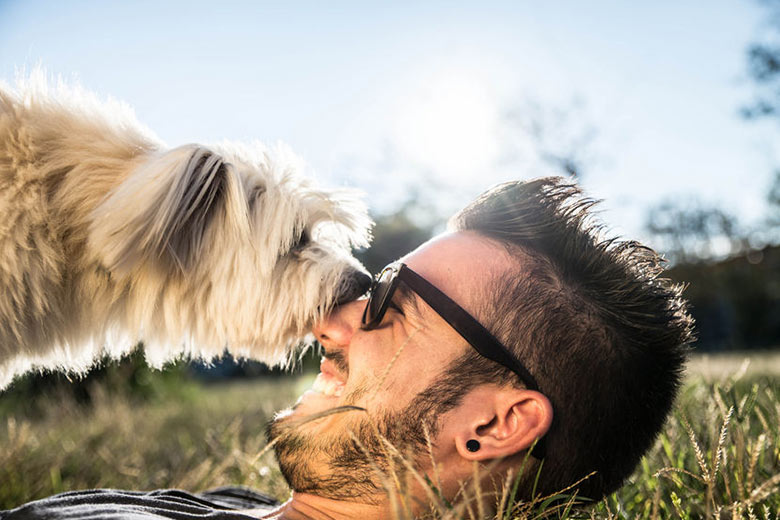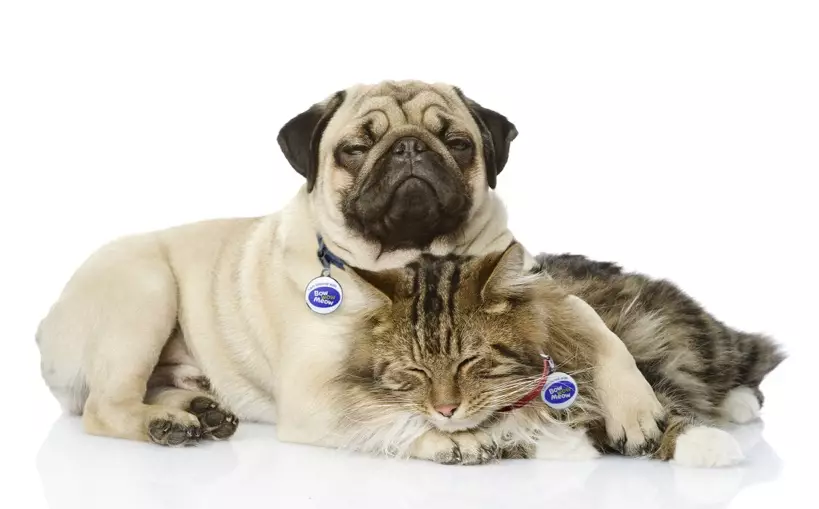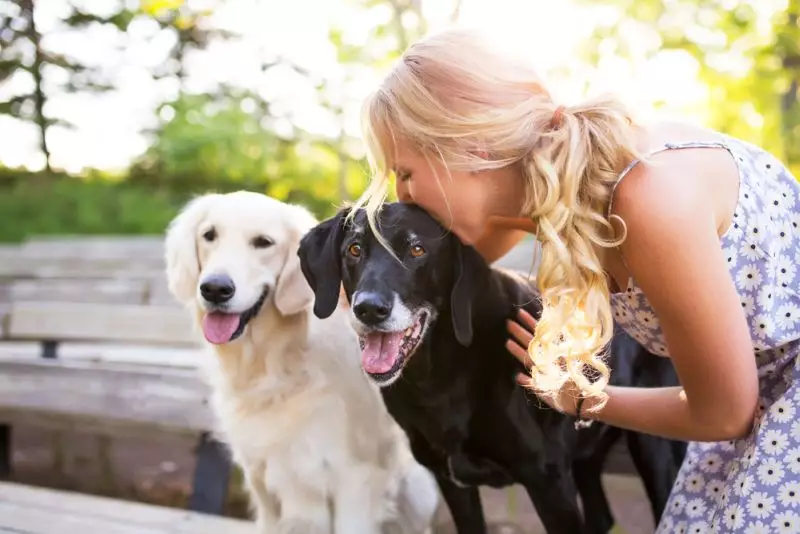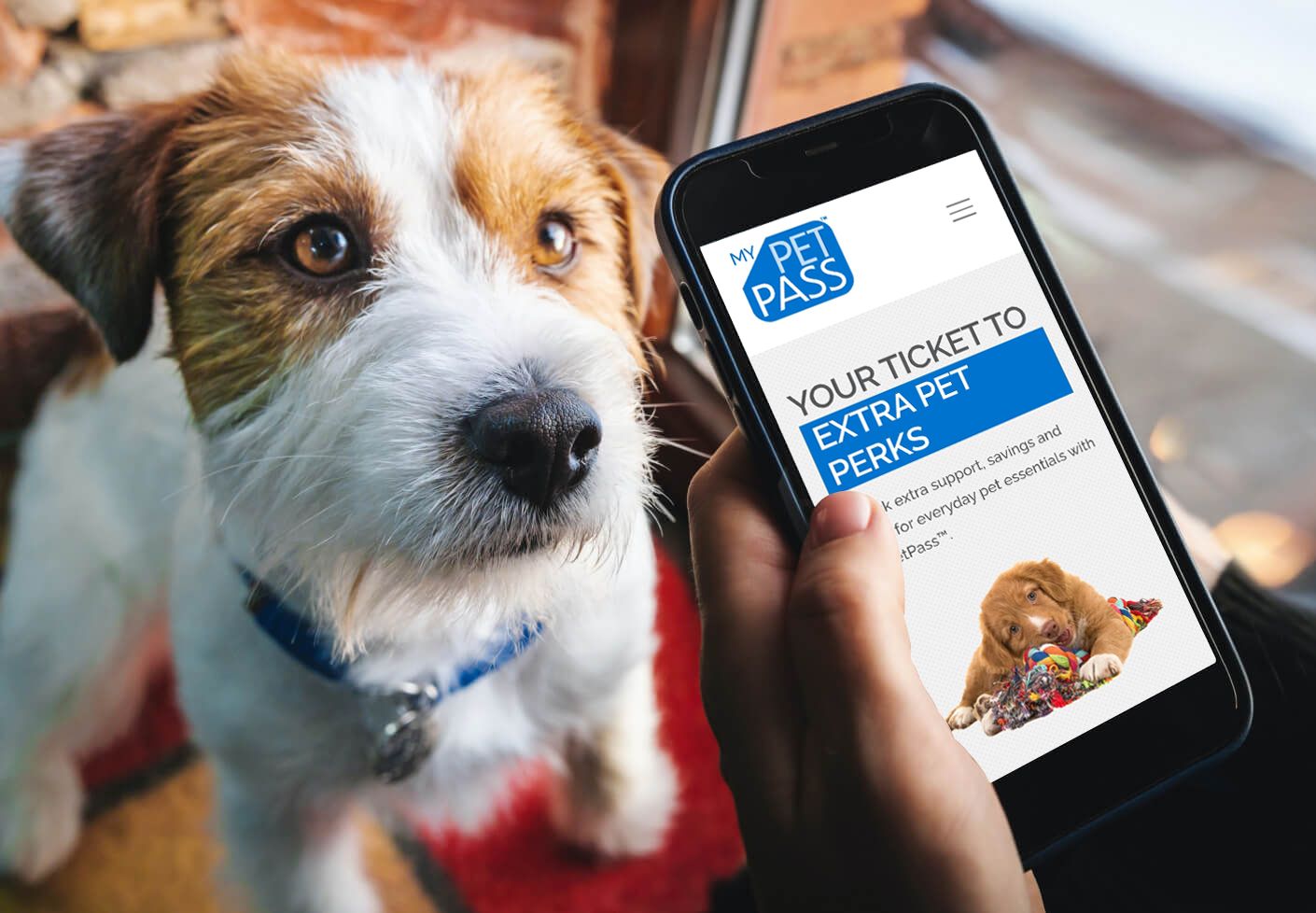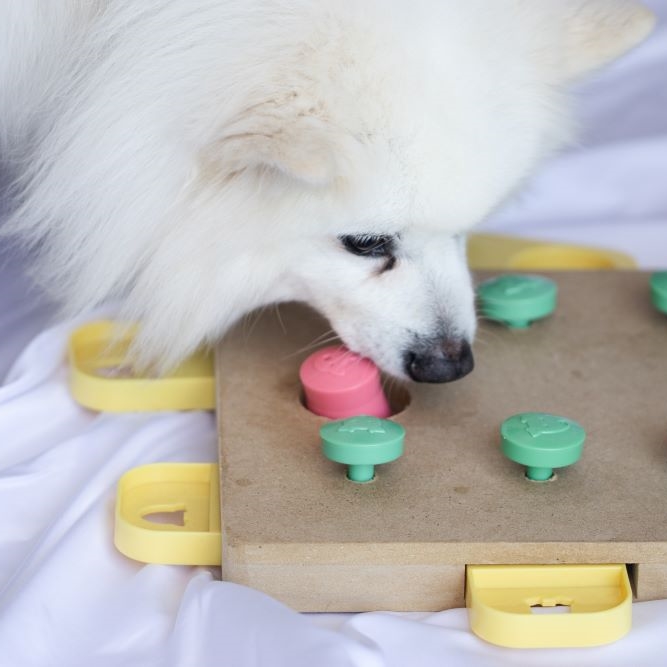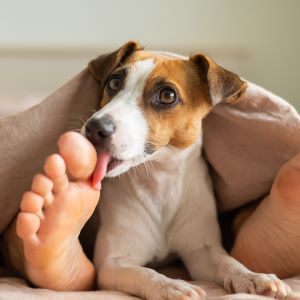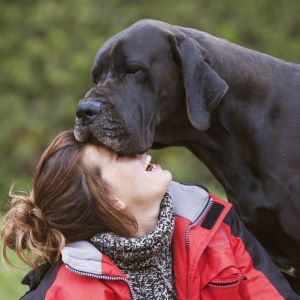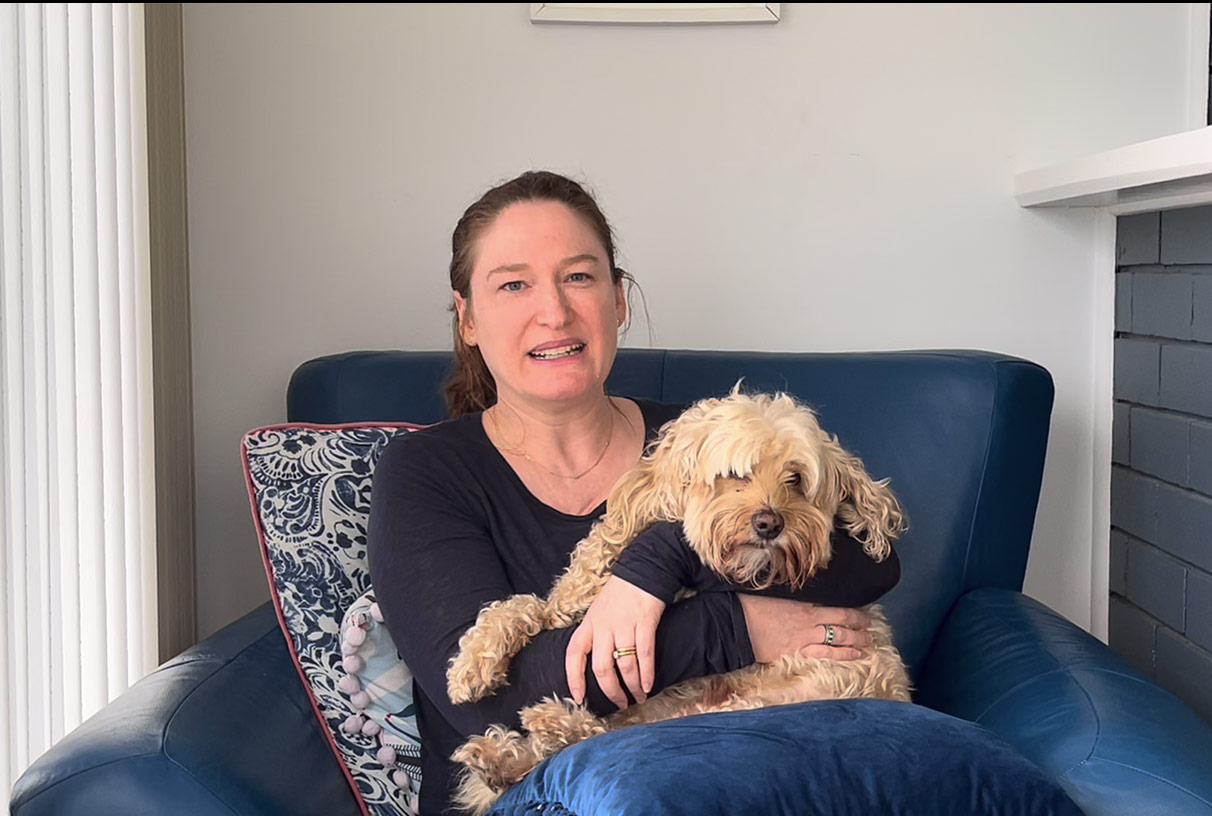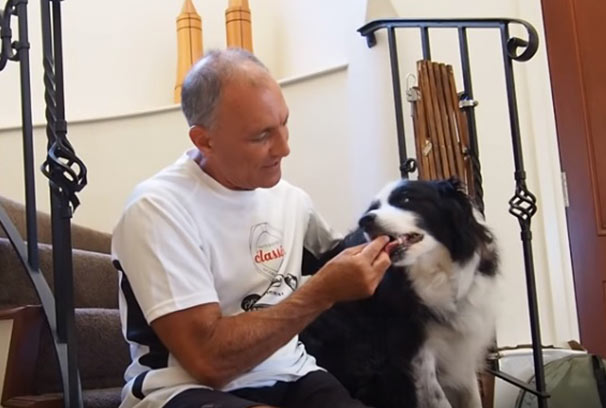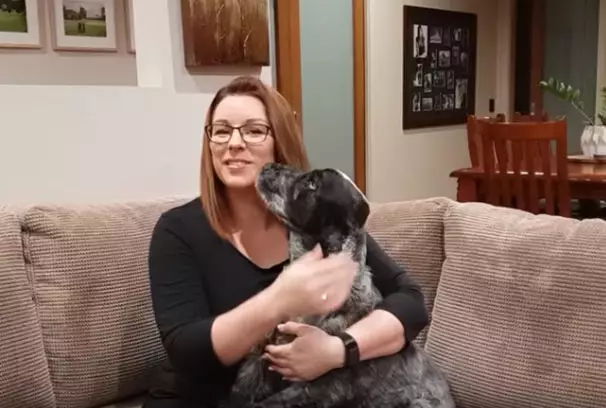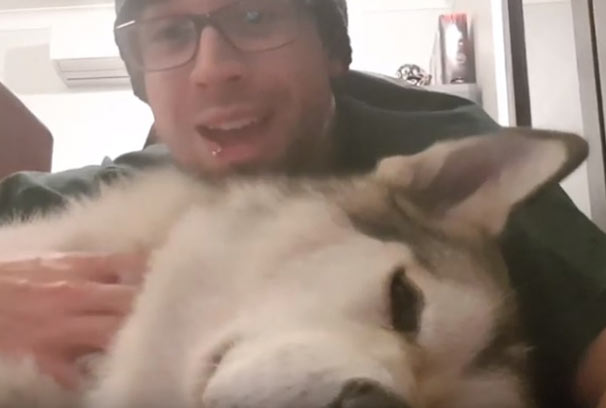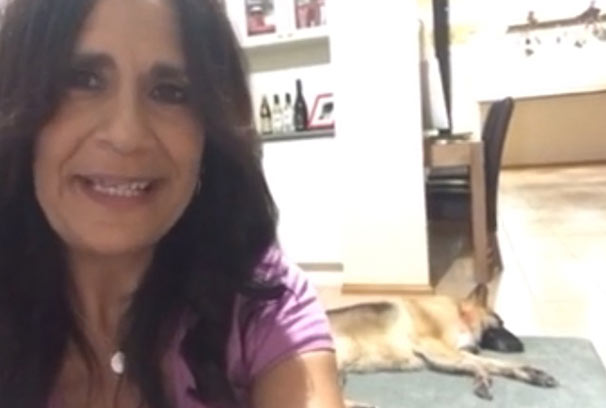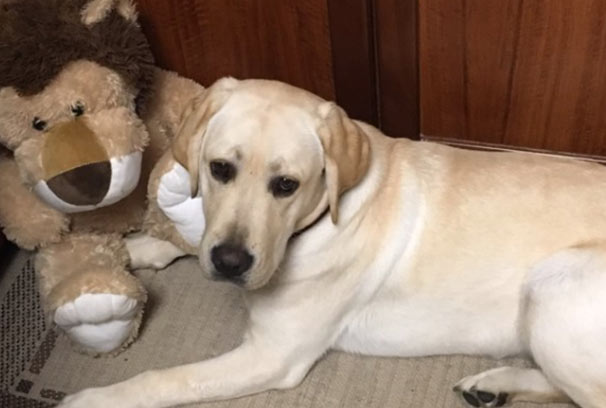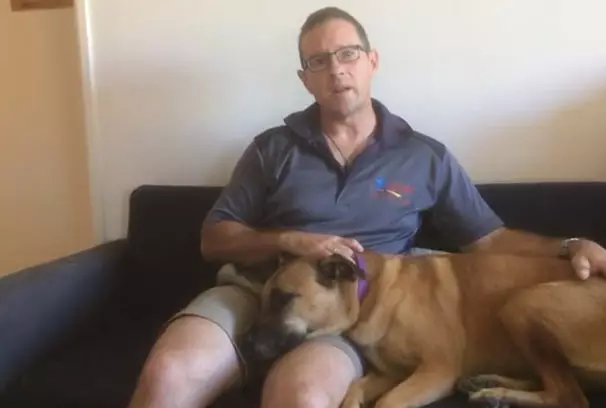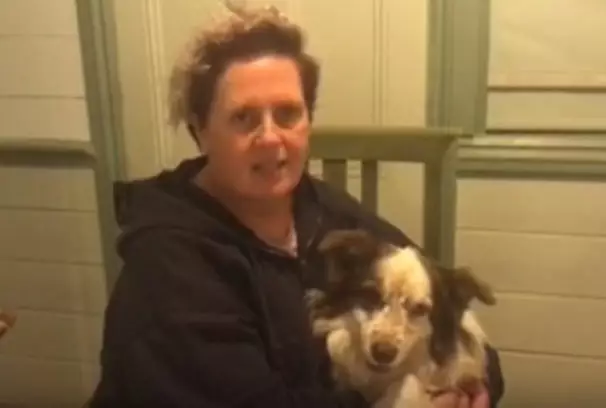Why does my dog follow me everywhere? Canine behaviour
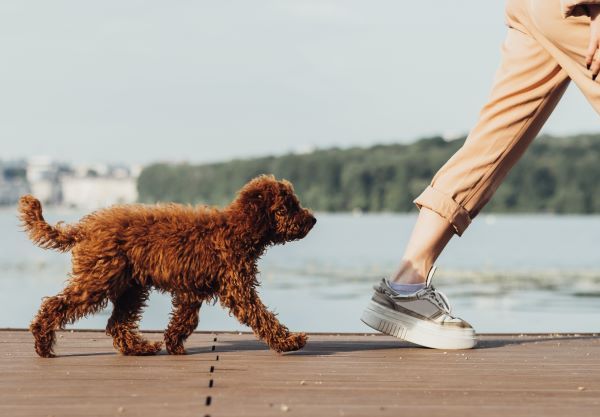
Do you have a four-legged shadow wherever you go, whether you’re walking around the house or outdoors, getting up to get a glass of water, or going to the bathroom?
 Having someone ‘on your tail’ at all times can be comforting, amusing or sometimes downright annoying, but regardless of your feelings on the matter, you may want to know why your dog follows you everywhere and whether it’s normal. After all, understanding the reasons for your dog’s Velcro-like behaviour can help strengthen the bond between you and ensure their well-being and happiness.
Having someone ‘on your tail’ at all times can be comforting, amusing or sometimes downright annoying, but regardless of your feelings on the matter, you may want to know why your dog follows you everywhere and whether it’s normal. After all, understanding the reasons for your dog’s Velcro-like behaviour can help strengthen the bond between you and ensure their well-being and happiness.
In this article, we explore some of the common reasons why dogs follow their special humans everywhere. Rest assured, most of the time, it’s nothing to worry about; in fact, it’s generally a sign of love, loyalty, and a desire for your company.
10 reasons why your dog follows you everywhere
1. It’s in their genes
Dogs, just like their wolf ancestors, are pack animals. When we remove them from their canine pack and bring them into our homes, they simply switch allegiance to their human pack.
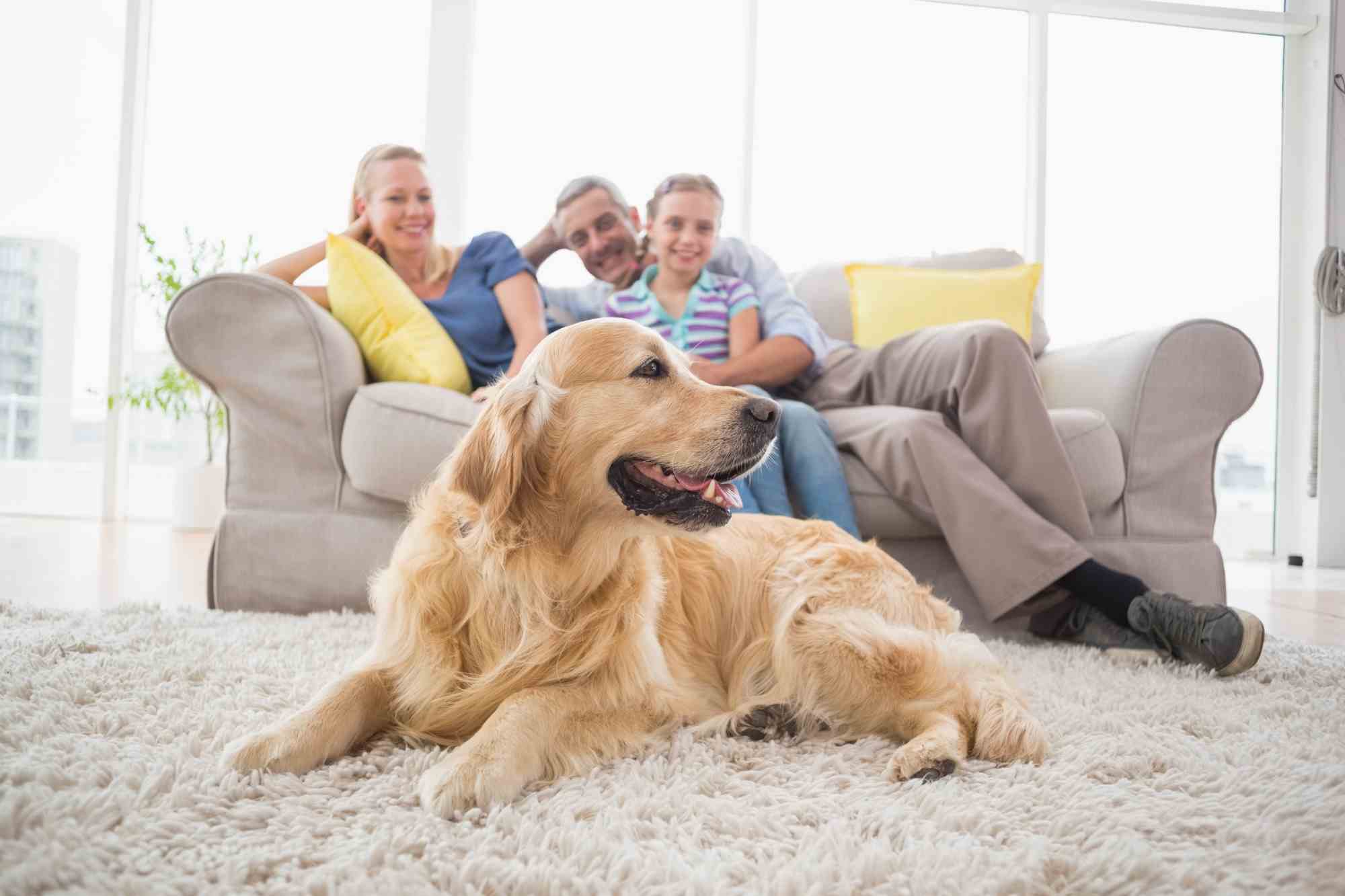
If you are the leader or their favourite member of the pack, they will instinctively follow you as you move around and about. However, genetics aren’t the only reason dogs like to follow people.
2. They are bonded to you (in human terms, they love you!)
If you are your dog’s favourite person, they will naturally want to be near you as much as possible. If your dog follows you everywhere then it’s probably a sign that they trust and love you and that you make them feel safe.
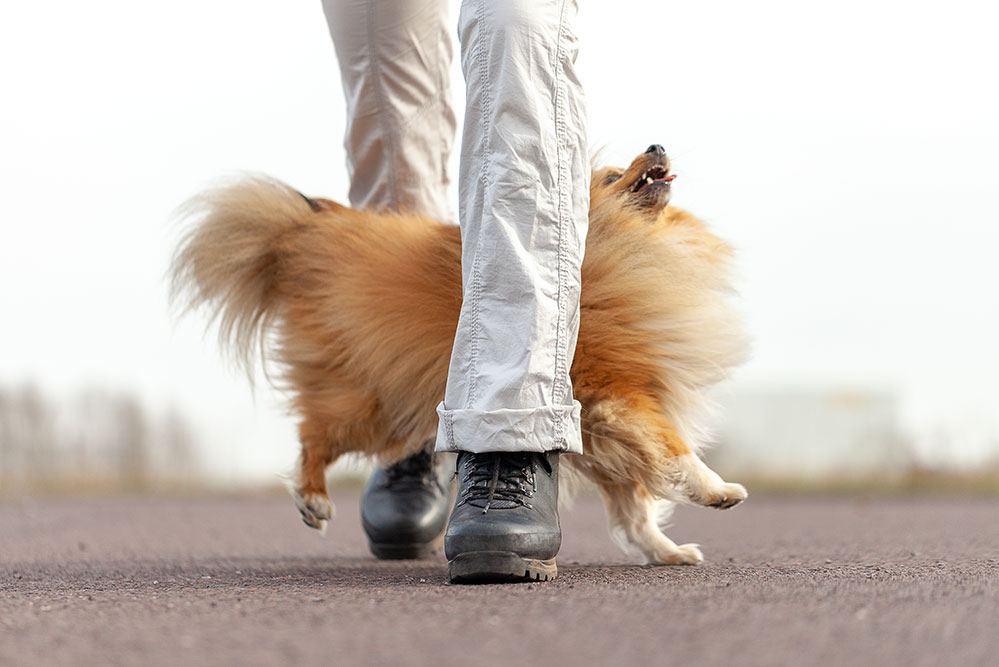
Although they may not quite understand the meaning of ‘personal space’, by following you everywhere they are letting you know that they want to be close to you and enjoy your company.
3. They are bored
A dog that is bored may follow you in the hope of finding something more interesting to do, even if it’s just watching what you are up to.
If you think your dog is following you everywhere because they may be bored, you need to find other ways to make life more interesting for them, such as longer or more frequent walks and playtime, or giving them chew toys or food puzzles to play with.
4. They want something from you
There’s a good chance your dog is following you because they want something: a cuddle, a game, food, a walk…
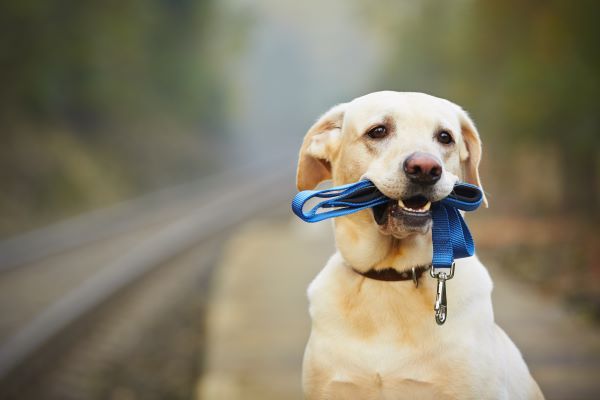
Dogs can’t tell the time but they seem to have a built-in alarm clock that alerts them when it’s nearing walk time, playtime or mealtime. They are also very good at reading our body language and picking up on clues about what we’re about to do next. If it is likely to involve them, they may follow you around in the hope it will hurry you along.
5. They are inquisitive creatures
Believe it or not, dogs can suffer from FOMO – they just don’t want to miss out on anything. They are naturally inquisitive and love to know what’s going on.
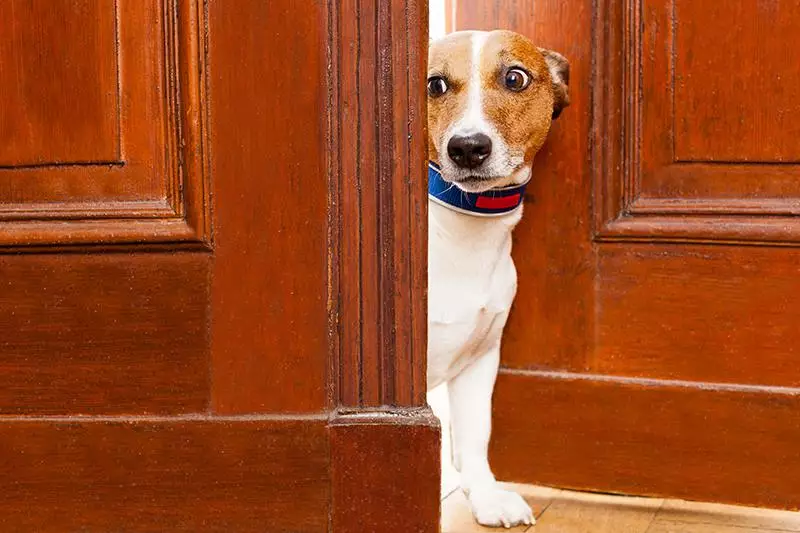
They may follow you around because, to them, you are all-knowing and the source many exciting and interesting things. They want to stick right behind you in order to be right where the action is!
6. You’ve trained them to follow you
Inadvertently, you’ve actually been rewarding them for following you around the house …
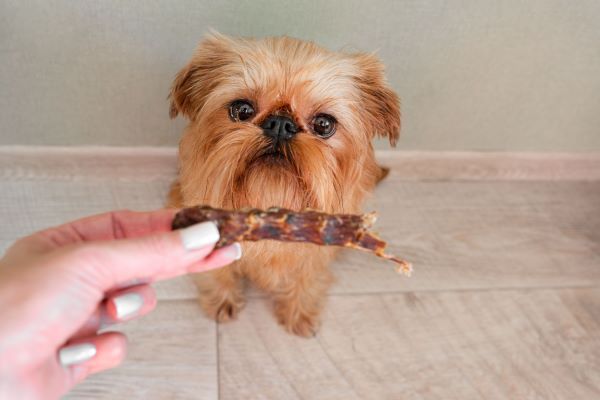
… by talking to them, smiling or looking at them, giving them a pat or even a treat as they shadow you. Giving them reassurance, attention and treats when they follow you – even if only occasionally – encourages them to keep doing it.
7. They’re a Velcro dog breed
Some breeds are more likely to follow humans around than others. Herding breeds were developed to spend lots of time with their master, working side-by-side and watching their every move for the next instruction, so are naturally more inclined to stay by your side. These include Border Collies, Hungarian Vizslas, Labradors, Golden Retrievers, Shetland Sheepdogs and Cattle Dogs.
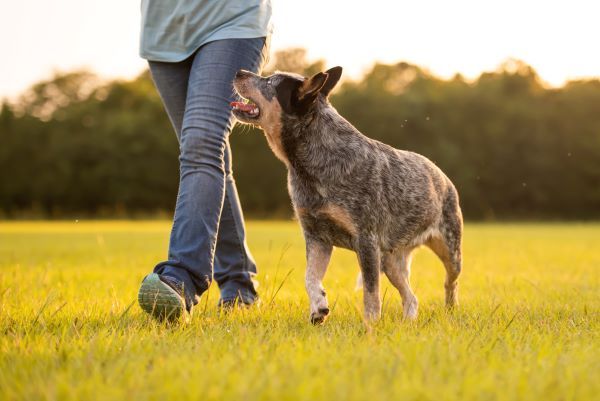
Guarding breeds like German Shepherds, Dobermanns and Boxers may want to stick close by you to keep an eye out for danger and ward off any threats, because they were bred to protect you.
Some Toy dogs were bred to be lap dogs, are most comfortable being close to you and might naturally follow you around. These include Chihuahuas, Maltese, Pugs, French Bulldogs, Cavalier King Charles Spaniels and Affenpinschers.
8. They’re worried about you
Dogs can be very compassionate and sensitive creatures. They often sense when you are feeling unwell or stressed out. If they’ve got a hunch you’re not yourself, they may follow you around the house to make sure that you’re okay, or to protect you from a perceived stressor.
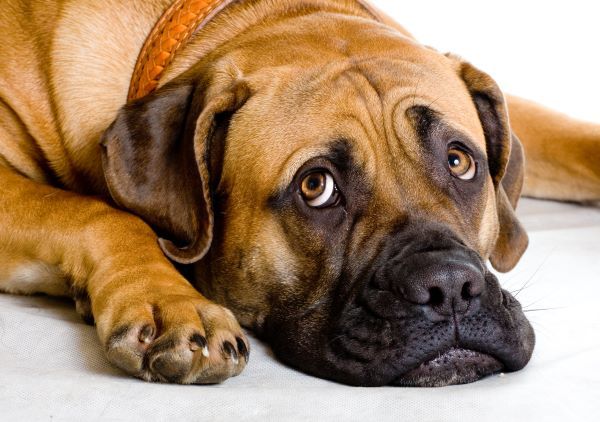
9. They’re feeling sick or worried
Occasionally, dogs will stick close to your side if they are nervous, frightened, worried, or stressed. This often occurs during scary events like thunderstorms and fireworks; they stay right by you because they see you as their protectors and comforters.
If your dog suddenly starts following you around, and is more clingy than usual, it could mean that they’re feeling unwell and want some extra comforting and love. If you’re concerned that there might be something potentially serious going on, then please consult your vet.
10. They have separation anxiety
Sometimes, persistent following can be a sign of separation anxiety. As we’ve seen, wanting to be close to you is a normal social behaviour for dogs, but some dogs may be too clingy and become extremely anxious when their owner leaves them.
If your dog follows you around a lot, but remains calm and relaxed when left alone, you don’t need to be concerned. On the other hand, if your dog follows you around the house and becomes very anxious and distressed just before you leave and especially once you’ve left, they are likely to be suffering from separation anxiety. This condition is often accompanied by one or more of the following behaviours:
- Non-stop barking
- Having accidents in the house
- Chewing furniture, shoes or being generally destructive, especially close to windows or the front door.
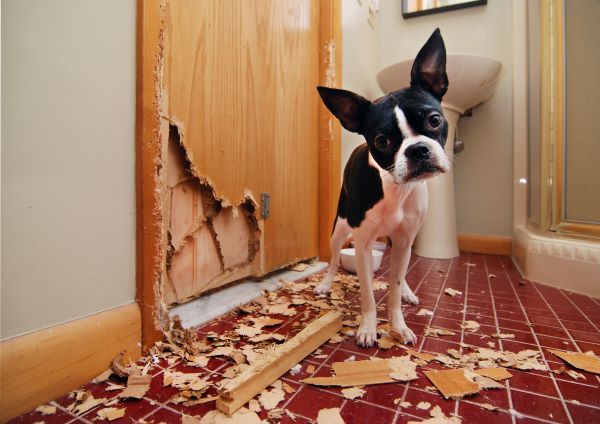
Some dogs may eventually settle down, while others may continue these behaviours until you get back. Separation anxiety is a complicated condition to manage and treat, and you may need to obtain professional advice from a vet or animal behaviourist.
To learn more about separation anxiety, please read our article Tips to avoid and treat separation anxiety in dogs.
How to discourage your dog from following you everywhere
If you are concerned that your dog is too clingy or dependent, you may want to discourage their persistent following. Here are some suggestions:
- Practice and reward the ‘stay’ command while progressively moving further away from them and staying away for increasingly longer periods. By consistently giving them praise, a treat or other reward when you return, your dog should gradually become less inclined to follow you around.
- Share responsibilities – walks, play, training, feeding – for your dog with other family or household members. This will give your dog the opportunity to bond with others, not just you.
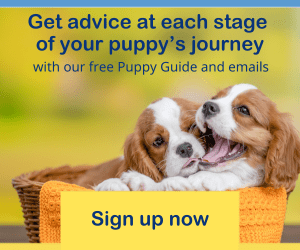 Keep your dog occupied for periods of time by giving them a toy, chew toy or food filled puzzle to play with. If your dog has a number of toys, try rotating them – put some away for another time to help keep them interesting and exciting.
Keep your dog occupied for periods of time by giving them a toy, chew toy or food filled puzzle to play with. If your dog has a number of toys, try rotating them – put some away for another time to help keep them interesting and exciting.- Don’t pay them any attention when they follow you around – you may be unwittingly encouraging them if you do (even if it’s negative attention). Rather, ignore them while they are following you and give them plenty of attention and praise when they stop following you, settle down or start doing something else.
- Desensitise your dog to you leaving the room. If they get up as soon as you do, keep standing up and sitting down until they get bored and stay settled. Then try getting up and walking out of the room. If they start to follow you, walk around the room until they get bored and stop. Then try leaving the room. If they follow you, keep going in and out of the room until they give up following you. Don’t turn it into a game, just keep calm and ignore them the entire time.
FAQ’s
Why does my dog follow me to the bathroom?
Your dog may follow you to the bathroom for the same reason they follow you to every other room: they may be bored, they want something from you, they’re super attached to you, etc. Or they may follow you to the bathroom because the bathroom is an interesting and exciting place! They may be curious about the smells, sights or sounds in the bathroom, be excited about getting a bath or playing with water, or enjoy lying on the cool tiles. On the other hand, they may feel need to protect you in a scary room, or are simply perpetuating the habit developed when they were a puppy and you took them into the bathroom with you.
How can I encourage or discourage this behaviour?
A dog often follows its humans around everywhere because it has previously received attention or some other form of reward in response to this behaviour. If you want to encourage a behaviour, make sure it leads to treats, praise or pats, so that your dog will remember and repeat it frequently.
If you want to discourage your dog from this behaviour, try to totally ignore your dog while they are following you and only pay attention or give treats once they have settled in another area. In so doing, you will start to break the habit of them trailing you to “get” something. Training your dog to follow commands like “stay” and “place” will show them it’s okay to be left in an area that you consider safe.
Is it normal for my dog to follow me outside?
Your dog may follow you around outside for the same reasons it follows you around the house. If your dog follows you around in an outdoor and off-leash environment, it is probably because you’ve trained it well. Your dog sees you as a trustworthy pack leader who knows exactly where you are going, so it will happily follow behind you. On the other hand, if your dog frequently runs far off to chase other dogs or explore, you should probably be keeping it on a lead, or train it to heel.
What if my dog suddenly stops following me?
If your dog who usually follows you like Velcro suddenly stops following you, there may be a medical reason, such as pain that worsens with movement. Boredom, aging and stress can also cause this change in behaviour. If it persists, it’s best to consult your vet to find out if the reason is something serious.
Can separation anxiety cause excessive following?
Yes it can. However, separation anxiety is more likely if one or more of the following behaviours also occurs, usually just before you leave your dog alone at home or while you are absent:
- Non-stop barking
- Excessive anxiety or distress
- Destructive, aggressive, or possessive behaviour (e.g. chewing furniture, curtains or shoes, digging up the garden)
- Reduced or loss of appetite
- Vomiting or diarrhoea
- Guarding of you or your belongings
In conclusion
If your dog is following you around everywhere, it is important to try to work out why they are doing it. Are they hungry, curious or bored? Do they want your affection or attention? Are they sick, stressed or anxious? Have they always done so, or is it a new behaviour? Once you have answered these questions, you can decide if you need to take steps to address it. If you are concerned, it is always best to consult with a veterinarian or animal behaviourist, who can help you determine the cause of your dog’s behaviour and recommend ways to address it.
Bow Wow Meow Pet Insurance can help protect you and your dog should an unexpected trip to the vet occur.
-
Find out more about our dog insurance options
-
Get an online pet insurance quote
Bow Wow Meow is proud to have been awarded winner of Canstar’s ‘Most Satisfied Customers’ Award in the Pet Insurance category for both 2024 and 2025!
Bow Wow Meow is proud to have been chosen as Product Review’s Pet Insurance Award Winner every year from 2018 to 2025! This is based on 2,995 independent customer reviews (as at 21/01/2025), with an overall rating of 4.3*
Google Review rating = 4.5* (based on 968 reviews)
Trust Pilot rating = 4.6* (based on 531 reviews)
Bow Wow Meow is proud to have been chosen as Product Review’s Pet Insurance Award Winner every year from 2018 to 2025! This is based on 2,995 independent customer reviews (as at 21/01/2025), with an overall rating of 4.3*
Google Review rating = 4.5* (based on 968 reviews)
Trust Pilot rating = 4.6* (based on 531 reviews)
Bow Wow Meow has been chosen as a winner in the Finder Pet Insurance Awards 2024. Finder’s panel of experts analysed over 140 quotes to award our Ultimate Care Plan the winner of the “Pet Insurance – Value” category.

